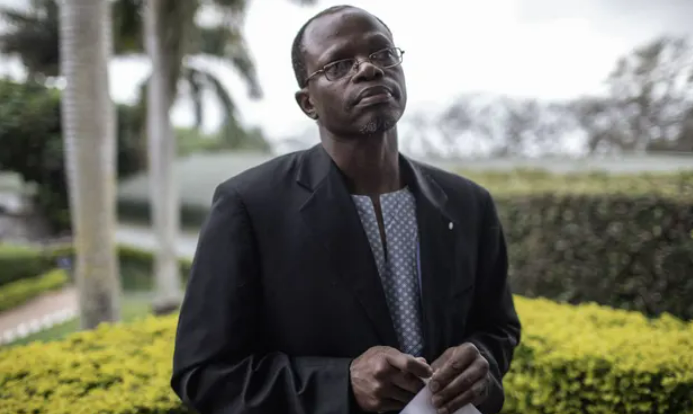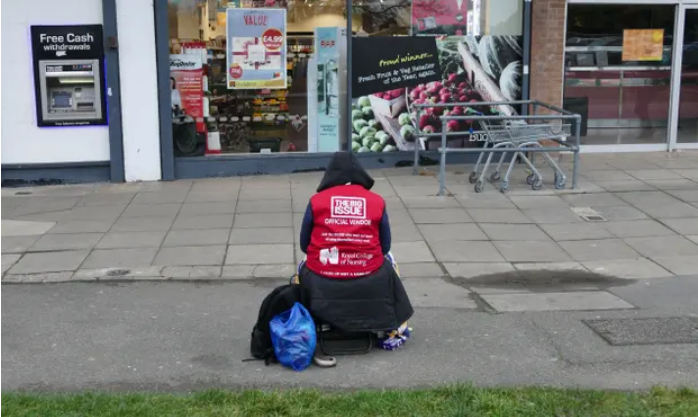Iranian morality police are uncertain following official’s “

A top official’s suggestion that Iran’s morality police, which upholds its dress code, had been disbanded, has left the situation unclear.
Attorney General Mohammad Jafar Montazeri responded, “They have been shut down from where they were set up,” when questioned about the Guidance Patrol during a conference.
The administration, however, declined to confirm the action, and local media claimed that his comments had been “misinterpreted.”
Nationwide protests have been prompted by the death of a lady who was held by the force.
After being detained in Tehran on September 13 for allegedly breaking the law mandating women to cover their hair with a hijab, or headscarf, Mahsa Amini, 22, collapsed and slipped into a coma.
According to reports, she was hit in the head with a baton by morality police. According to the authorities, she had a heart attack.
After Ms. Amini passed away on September 16 in a hospital, anti-government demonstrations—which the Iranian government referred to as “riots”—took place all around Iran.
Although her passing served as a spark for the unrest, other factors such as long-standing anger with poverty, unemployment, inequality, injustice, and corruption have also contributed to it.
Since the 1979 Islamic Revolution, Iran has had a number of “morality police,” but the Guidance Patrol (Gasht-e Ershad), the most recent iteration, is currently in charge of upholding the Islamic code of conduct in Iran.
In order to police the dress code, which also mandates that women wear long clothing and forbids shorts, ripped jeans, and other attire deemed immodest, they started their patrols in 2006.
When Mr. Montazeri was questioned about the Guidance Patrol, he was attending a religious convention.
The morality police were disbanded from their base of operations since they had no connection to the judiciary, he claimed.
The judiciary will nonetheless “watch behavioural actions at the community level,” he said.
The interior ministry, not the judiciary, has responsibility over the Guidance Patrol because it is a component of the national police force.
Some Iranian official media outlets disputed that the morality police had been disbanded after the BBC and other international media outlets reported the attorney general’s assertion.
Al-Alam, a government-run Arabic-language television station, claimed that some people “tried to distort” what the attorney general said.
The most that can be inferred from Mohammed Jafar Montazeri’s comments is that since their start, the morality police’s patrols have not been affiliated with the judiciary.
Student News Network (SNN), a conservative news source, scoffed at the “false headlines” and emphasized that wearing the headscarf is “still a law in Iran.”
The reformist Sharq newspaper, however, claimed that although it had contacted Tehran’s police force’s public relations office, the subject of disbanding the Guidance Patrol had been “dodged” by officials.
In addition, when questioned about Mr. Montazeri’s comments made while visiting Serbia, Iranian Foreign Minister Hossein Amir-Abdollahian gave neither affirmative nor negative answers.
According to the framework of democracy and freedom, “Everything in Iran is progressing well,” he remarked.
Mr. Montazeri also informed the Iranian parliament on Saturday that the law requiring women to wear hijabs would be reviewed.
“What we have is a revolution,”
The elimination of the morality police would represent, if verified, a concession to the demonstrators.
However, there is no assurance that it would be sufficient to put an end to the unrest, which has seen women burning and waving their headscarves in the air.
One Iranian woman told BBC World Service’s Newshour program, “Just because the administration has chosen to remove morality police doesn’t mean the protests are stopped.”
“It’s not good enough that the government says wearing a hijab is a personal choice. People are aware that with this administration in place, Iran has no future. More moderate and traditional members of Iranian society will come out in favor of women’s efforts to regain more of their rights.
“We, the demonstrators, don’t care about the hijab any more,” a different woman remarked. The last 70 days, we’ve been going out without it.
“We are experiencing a revolution. The beginning of it was the hijab, and we demand a change of government and the death of the dictator.
These tools drive sharks away from fishing hooks by creating an electric field.
The removal of Iran’s morality police, according to US Secretary of State Antony Blinken, could be “a good thing,” and he commended the “extraordinary courage of Iranian young people, especially women, who have been leading these protests.”
https://www.bbc.com/news/world-middle-east-63850656
He continued, “If the regime has now reacted in some way to those protests, that could be a good thing.”





